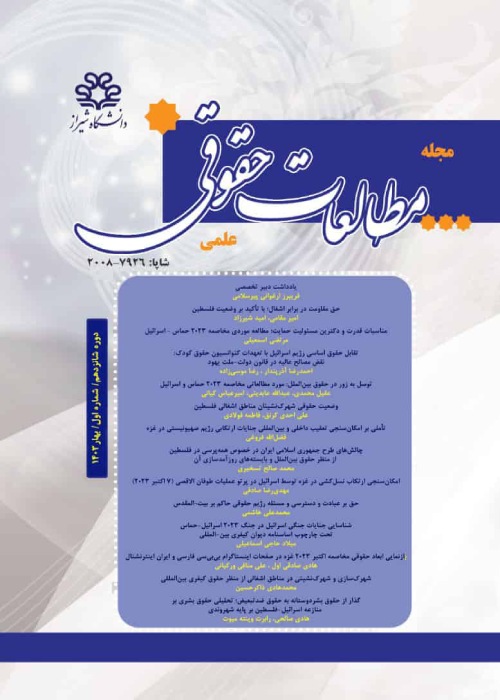Power relations and the doctrine of The Responsibility to Protect; A case study of The Hamas-Israel 2023 Conflict
The doctrine of the Responsibility to Protect (R2P) emerged in response to the weaknesses of international law in addressing human security concerns. It is rooted in the concepts of "human security" and "humanitarian intervention." The post-Cold War era saw a shift in international relations, with the rise of non-state actors, international institutions, and intra-state conflicts. This context led to debates surrounding humanitarian intervention, specifically the use of force by one state against another to protect civilians. The concept of "right to intervene" evolved into "responsibility to protect," and the traditional view of sovereignty as control transformed into sovereignty as responsibility. These developments culminated in the adoption of the R2P doctrine between 2000 and 2005.
Despite ongoing discussions about its effectiveness and legitimacy, the R2P doctrine offers a potential legal framework for international responses to civilian suffering. This study examines the 2023 conflict between Hamas and Israel through the lens of R2P. Although the doctrine has an explicit legal basis, the United Nations Security Council (UNSC) did not invoke it in support of the Gazan population. This research investigates why the UNSC failed to utilize R2P in the recent Gaza crisis.
Main research question:
Why was the UNSC unable to resort to the R2P doctrine in the recent Gaza crisis? Why did the UN fail to take any effective action based on R2P to support the people of Gaza?
Secondary research question: Does the R2P doctrine provide a sufficient legal basis for an international response (by the UNSC) to support civilians in the Gaza Strip?
The study hypothesizes that power relations and the mechanisms governing the international system hindered the UNSC's use of R2P in the case of Gaza.
The research suggests that the hierarchical power structure within the UN, particularly the veto power, played a significant role. The United States' instrumental use of the UN to maximize its power, interventions, and regional interests in the Middle East, coupled with its strong support for Israel, rendered the R2P doctrine ineffective in the Gaza crisis.
This research employs aggressive realism theory and adopts a descriptive-explanatory approach. The study argues that despite the legal basis for applying R2P to support the Gazan population following the 2023 conflict, the question remained: which state was responsible for protecting Gazan civilians, and why did they fail to uphold this responsibility? The research then examines the relevance of the R2P doctrine in the context of the UN's role.
The research confirms the hypothesis that power relations and the mechanisms governing the international system impeded the UNSC's use of R2P for the residents of Gaza. The findings suggest that the hierarchical power structure within the UN, particularly the veto power, along with the United States' instrumental use of the UN and its unwavering support for Israel, contributed to the ineffectiveness of the R2P doctrine in the recent Gaza crisis.
The United States, seeking to maximize its power and ensure its own security in the aftermath of the 2023 Hamas-Israel conflict, resorted to "backpassing" responsibility to its regional partner, Israel. This strategy aimed to maintain control over the crisis and prevent other major powers and regional actors from gaining influence.
The strategic alliance between the US and Israel, along with the US's commitment to supporting Israel as its regional partner within the Middle East's "backpassing" system, aimed to maximize US power against competitors and uphold the existing international order and power structure within international organizations like the UN. These factors ultimately led the UN Security Council to disregard and fail to implement the R2P doctrine in support of the Gazan people, despite the clear legal basis for its application. As long as current conditions persist and power relations continue to overshadow the R2P doctrine, we risk witnessing the further marginalization of this doctrine on the altar of US patronage of Israel.
- حق عضویت دریافتی صرف حمایت از نشریات عضو و نگهداری، تکمیل و توسعه مگیران میشود.
- پرداخت حق اشتراک و دانلود مقالات اجازه بازنشر آن در سایر رسانههای چاپی و دیجیتال را به کاربر نمیدهد.


